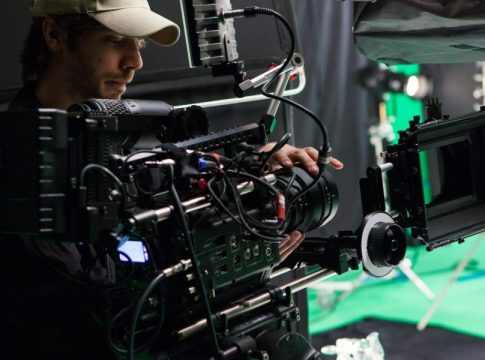The Rise of AI in Content Creation: Promise vs. Practicality
As artificial intelligence (AI) evolves, its applications in various fields, especially content creation, are expanding rapidly. Google’s latest video-generation tool, Veo, promises to simplify the content creation process, making it more accessible to a broader audience. However, while the capabilities of AI in video production are intriguing, industry experts remain cautious about its transformative potential in film and television.
The Strain of Production Costs
Despite innovations like Veo, the landscape of film and television production is marked by escalating costs. Kevin Mayer, a former Disney executive, highlights that creating high-quality content is becoming prohibitively expensive. “You can’t really depend on AI too much,” Mayer noted during a discussion on Yahoo Finance. This concern underscores the broader context of the so-called "streaming wars," where competitors like Netflix, Amazon, and Disney vie for viewers by investing heavily in original programming.
As production costs continue to surge, Jennifer Turner, a former EVP for TriStar Television, points out that the strategy to amass subscribers has led to dramatic increases in both talent fees and the scale of productions. This focus on bold growth strategies is shifting, as profitability gains precedence in today’s competitive environment.
The Cost of Competition
Rob Rosenberg, ex-GC for Showtime Networks, emphasizes the unsustainable spending that characterized the initial phases of the streaming boom. Projects have sometimes commanded prices tenfold higher than their actual value in auctions. For instance, a single episode of “Stranger Things” reportedly racked up a production bill of $30 million, raising questions about the viability of such investments.
Even giants like Apple, which has reportedly lost over $1 billion annually since launching its streaming service, continue to pour resources into content development. The hope is that this strategy will eventually pay off, while industry speculation indicates that current trends require a serious recalibration.
AI: A Tool, Not a Replacement
While AI has already influenced aspects of filmmaking—from CGI enhancements to voice manipulation—its full potential as a content creator remains largely untapped. Turner asserts that we’re still far from AI producing full-length feature films with the finesse of human creators. As artistic tools, AI capabilities have achieved recognition, even earning nominations for awards, but they remain limited in scope.
The recent strike involving over 11,000 Hollywood screenwriters highlights the ongoing tensions surrounding AI’s role in the industry. Concerns range from job security to the creative integrity of content. As Rosenberg aptly puts it, AI is simply another tool in the filmmaker’s kit, akin to CGI, and its practical implications for the workflow are still being explored.
The Road Ahead
In a world where AI has proved its worth in various sectors, the entertainment industry finds itself at a crossroads. While AI technologies present opportunities for efficiency and creativity enhancements, industry professionals temper optimism with practical realities. The pressing challenges of cost, creative integrity, and the unique artistry of storytelling raise fundamental questions about the role of AI in shaping entertainment’s future.
As the technology matures, its integration into mainstream content creation will be closely watched, revealing whether it can indeed transform an industry steeped in tradition. The dialogue between AI’s promise and the enduring value of human creativity will shape the next chapter in entertainment history.

Writes about personal finance, side hustles, gadgets, and tech innovation.
Bio: Priya specializes in making complex financial and tech topics easy to digest, with experience in fintech and consumer reviews.

